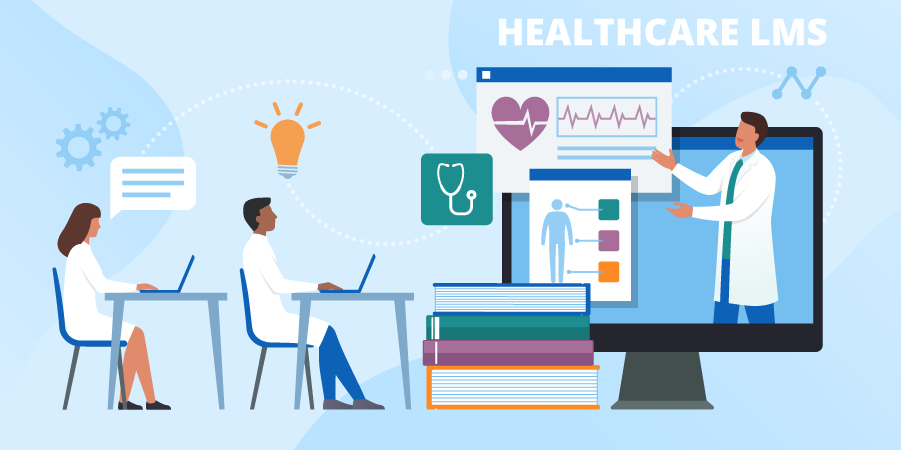5 Insights on How Adults Learn to Improve CME Effectiveness

In today’s healthcare environment, physicians face an inordinate amount of knowledge that requires continued education and lifelong learning. Learning does not stop once the new doctors have left their medical schools.
Traditional continuing medical education (CME) courses cannot meet these educational needs and increasing demands on physicians’ time and resources. CME courses must evolve into a learning manner that focuses on principles of adult learning theory rather than remain in the in-person, face-to-face methods of the past.
Of the numerous theories of adult learning, these are among the most influential: the cognitivist, constructivist theories, and self-directed learning. No single theory fits the learning style of all adult learners, so most educators use elements from each.
In this blog post, we will highlight five insights on how adults learn to improve CME effectiveness.
Adults Learn in Various Ways
All adults learn in different ways. The key is you must address how your learners receive their information.
Accept that your learners have different ways of learning. Acknowledging their various learning styles and objectives is critical to their CME success. Malcolm Knowles was the first to coin the phrase, andragogy, from which came a number of insights involving the differences in how adults learn from that of children. Coupled with Knowles's studies, they can be used as insights on how adults learn to improve CME effectiveness, particularly when there is the ongoing move away from the typical, traditional methods of teaching such as lectures and learning by rote.
- When it comes to their education, adult learners are results-oriented. The question that’s often asked is “What’s in it for me?” must be taken into account when designing CME content.
- Adults are self-directed, that is, they want to take the lead in their educational process, choosing the techniques and goals from which they learn most effectively. Your CME must address these needs.
- Adults already come equipped with life experiences that make them relevant, resulting in a desire to learn. When planning CME content, it’s crucial to develop content that connects with the learner’s knowledge and their life experiences.
- When it comes to real-life situations, learners want their knowledge presented in a way that can be applied to their own experiences, so it’s up to CME content developers to provide them with materials that can be applied to this need.
- Adults also possess the motivation when they can perceive that the new information can help them resolve problems in their work and/or personal lives.
As a CME content designer and developer, use these insights on how adults learn to improve CME effectiveness. Here, we’ll look at three of the adult learning theories applicable to CME development.
The Cognitivist
Those learners who learn through cognitivism build their knowledge through information thought processes, that is, how their overall knowledge is accumulated. By using perception, recognition, conception, and reasoning processes, learners are able to successfully increase their skills.
They also engage in self-regulated learning and use its relevance to their experiences. Offering CME content that uses cognitive learning provides your learners with opportunities to allow them wanting to learn about the content they are studying.
The Constructivist
In constructivism, learners receive new information based on their personal and/or professional experiences. This merging of the new with the old results in the construction of new information understanding. It is the role of the instructor to facilitate the learners’ change in the perception rather than use traditional forms of didactic learning. In this adult learning theory, learners are now seeking active and social forms of gaining new information.
Self-directed Learning
Another of the insights on how adults learn to improve CME effectiveness comes in the form of self-directed learning. Self-directed learning enables your learners to plan, carry out, and evaluate their learning experiences without help from others. They set goals to determine their educational needs and do more to enhance their learning. This particular theory is ideal for learners who are self-motivated and respond well to using technology-based learning.
How Adults Learn with Technology
Yet another of the insights on how adults learn to improve CME effectiveness involves the use of technology. This mode has been developing over a number of years as a response to the many challenges that face medical education including rapidly changing medical science, the changing roles of physicians, and the diversity of pedagogical techniques.
Educational goals of today’s use of technology in medical education include:
- enabling knowledge acquisition
- improving decision making
- improving skill coordination
- enhancing perceptual variation
- increasing skill coordination
- practicing for rare or critical events
With these goals in mind, various e-learning technologies can address these goals for your learners. The increasing availability of e-learning is becoming an educational tool to deliver all aspects of curriculum through the use of the internet, including distance learning and web-based platforms, CDs, video conferencing, and other specialized software. Add to this enduring materials that exist over time and include video- and audio-based, CD-ROMs, and other internet-based programs.
How Adults Learn to Improve CME Effectiveness Using EthosCE
When it comes to insights on how adults learn to improve CME effectiveness, several forms of adult learning theory are valuable. A CME platform such as EthosCE provides the tools you need as you are developing your curriculum, supplying your learners with comprehensive learning experiences.
At EthosCE, we understand the challenges of creating effective CME programming. We know how critical it is to find effective ways to make an impact on learners in a busy, modern world..
To learn how EthosCE can enhance the continuing education of your healthcare teams, schedule a free 1-on-1 demo with one of our specialists today
